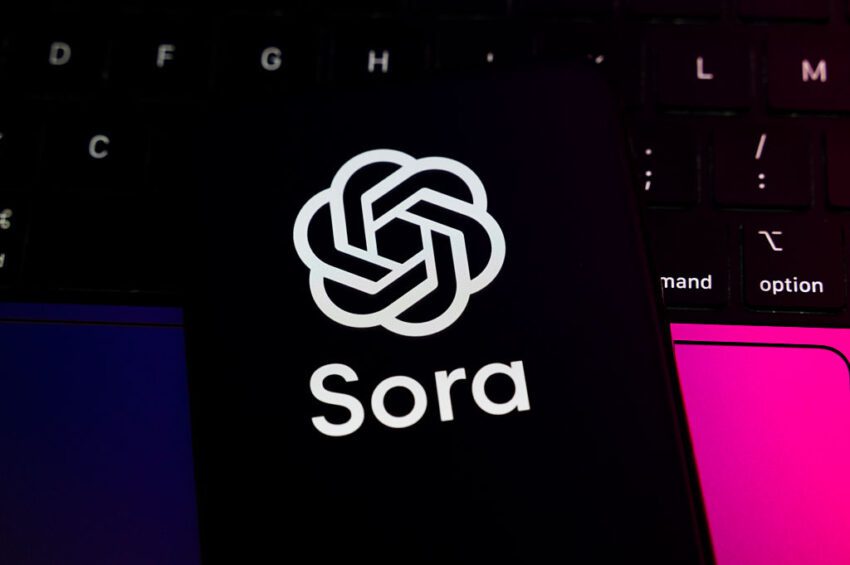
sam altman says sora will add granular OpenAI is shifting its stance on copyright and intellectual property with the upcoming release of its new video application, Sora.
sam altman says sora will add granular
Introduction to Sora
Sora, OpenAI’s latest venture, is designed to revolutionize the way users create and share video content. As the demand for innovative video applications continues to grow, Sora aims to provide a platform that not only enhances user creativity but also addresses the complex landscape of copyright issues. This move comes at a time when the intersection of technology and intellectual property is under increasing scrutiny, making it essential for companies to navigate these waters carefully.
Granular, Opt-In Copyright Controls
One of the most significant features of Sora is its introduction of “granular,” opt-in copyright controls. Sam Altman, the CEO of OpenAI, emphasized that these controls will empower users to have more agency over their content. This approach marks a notable departure from traditional copyright frameworks, which often impose blanket restrictions on the use of creative works.
What Are Granular Copyright Controls?
Granular copyright controls allow users to specify the extent to which their content can be used by others. Unlike conventional copyright systems that typically require users to forfeit certain rights upon sharing their work, Sora’s model enables creators to retain specific rights while granting permissions selectively. This could include allowing others to remix, share, or monetize their content under defined conditions.
Implications for Content Creators
The introduction of such controls could have profound implications for content creators. By providing a framework that respects their rights while encouraging collaboration and innovation, Sora may foster a more vibrant creative community. This could lead to a surge in user-generated content, as creators feel more secure in sharing their work without the fear of losing control over it.
Context of Copyright in the Digital Age
The digital landscape has transformed how content is created, shared, and consumed. With platforms like YouTube, TikTok, and Instagram, the barriers to entry for content creation have lowered significantly. However, this democratization has also led to challenges regarding copyright infringement and intellectual property theft. Many creators have found themselves in precarious situations where their work is used without permission, leading to a growing demand for more nuanced copyright solutions.
The Current State of Copyright Law
Copyright law has struggled to keep pace with the rapid evolution of technology. Traditional copyright frameworks often fail to accommodate the unique characteristics of digital content, resulting in confusion and frustration for creators. Many have called for reforms that would better protect their rights while promoting innovation. Sora’s approach to granular copyright controls may represent a step in this direction, offering a model that aligns more closely with the realities of digital content creation.
Stakeholder Reactions
The announcement of Sora’s copyright controls has elicited a range of reactions from various stakeholders in the creative community.
Content Creators
Many content creators have expressed optimism about the potential of Sora’s granular controls. By allowing them to dictate how their work is used, creators feel empowered to share their content more freely. This could lead to increased collaboration among creators, as they can easily negotiate terms for the use of their work. However, some remain cautious, concerned about the complexity of managing multiple permissions and the potential for misunderstandings.
Legal Experts
Legal experts have also weighed in on the implications of Sora’s approach. Some view it as a progressive step that could inspire other platforms to adopt similar models. Others caution that the effectiveness of these controls will depend on how they are implemented and enforced. The legal landscape surrounding copyright is intricate, and any missteps could lead to disputes that undermine the intended benefits of the system.
Industry Competitors
Competitors in the video application space are likely to be watching Sora closely. If the platform successfully attracts a significant user base, it could set a new standard for copyright management in digital content. This may prompt other companies to reevaluate their own copyright policies and consider adopting more flexible frameworks to remain competitive.
Potential Challenges
While the introduction of granular copyright controls presents exciting opportunities, it also poses several challenges that OpenAI will need to address.
Complexity of Implementation
Implementing a system that allows for granular permissions can be complex. OpenAI will need to develop user-friendly interfaces and clear guidelines to ensure that creators can easily navigate the copyright controls. If the system is too complicated, it may deter users from fully utilizing the features, undermining the intended benefits.
Enforcement Issues
Another challenge lies in the enforcement of these copyright controls. While Sora may provide the tools for creators to manage their rights, ensuring compliance from other users will be critical. OpenAI will need to establish mechanisms for monitoring and addressing potential infringements, which could require significant resources.
Public Perception and Trust
Building trust among users will also be essential for Sora’s success. Creators need to feel confident that their rights will be respected and that the platform will act in their best interests. OpenAI will need to communicate transparently about how the copyright controls work and how they will be enforced to foster a positive perception of the platform.
Future of Copyright in Digital Media
The introduction of granular copyright controls in Sora could signal a broader shift in how copyright is approached in the digital age. As more platforms recognize the need for flexible and user-centric copyright solutions, we may see a trend toward more innovative frameworks that empower creators while promoting collaboration.
Potential for Industry-Wide Changes
If Sora’s model proves successful, it could inspire other companies to adopt similar approaches. This could lead to a more cohesive and supportive environment for content creators across various platforms. As the industry evolves, the focus may shift from rigid copyright laws to more adaptable systems that prioritize the rights and needs of creators.
Long-Term Implications
In the long run, the success of Sora’s granular copyright controls could reshape the landscape of digital content creation. By empowering creators and fostering collaboration, platforms like Sora may help cultivate a more dynamic and innovative creative ecosystem. This could ultimately benefit consumers as well, as a wider array of diverse and engaging content becomes available.
Conclusion
OpenAI’s Sora represents a significant step forward in addressing the challenges of copyright and intellectual property in the digital age. By introducing granular, opt-in copyright controls, the platform aims to empower creators and foster a more collaborative environment. While challenges remain, the potential for positive change in the creative community is substantial. As Sora prepares for its launch, the industry will be watching closely to see how this innovative approach unfolds and what it means for the future of copyright in digital media.
Source: Original report
Was this helpful?
Last Modified: October 4, 2025 at 9:37 pm
1 views















